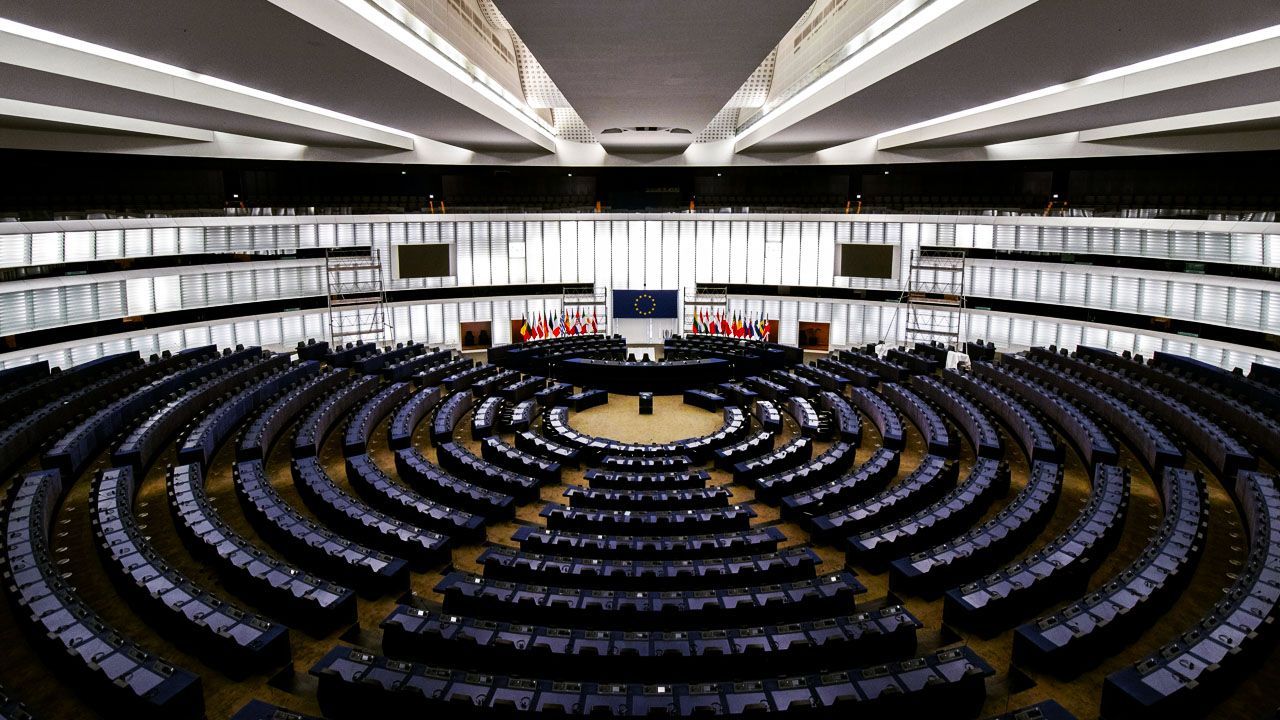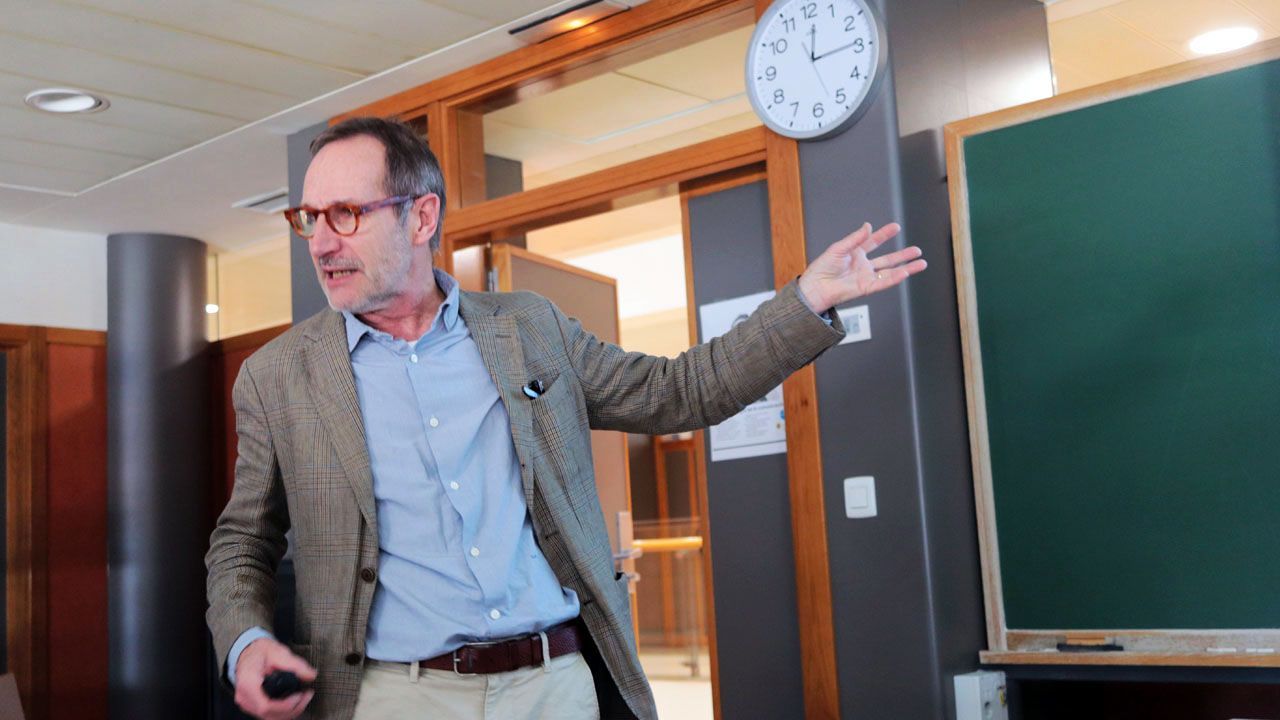Do you know how European laws are made? What the proportion of European laws discussed in your national parliaments is? Why there is lobbying in the European Union? And the difference between corruption and lobbying?

Rik Otten teaches at the Artevelde University College in Ghent, Belgium, the country of the European Parliament. On Tuesday 26th February, he told fourth-year PR & Advertising students about policy making and lobbying in the European Union in the frame of the International Days.
What is lobbying?
Rik Otten started by asking the students what they thought lobbying was. Then, he told them that it consists in defending the interests of an organization in the public sphere by managing information. From the beginning of the lecture, Rik Otten stated: “It can be very harmful for societies. So, ethics is important. Lobbying ends where corruption begins.”
Why is there lobbying in the European Union?
Students learned more about why lobbying is important in Brussels. Rik Otten explained that this activity exists because organizations, like civilians, face politics and the rules (regulations for the workers, taxes…). But unlike individuals they have no right to vote. Thus, “Lobbying is transforming something you can’t do anything about into something you can act upon”.

Four major reasons explain why Brussels is an important place to lobby:
- 75% of the laws in EU members parliaments are European laws being reformulated into local ones.
- There is a distance between the citizens and the European political institutions. Thus, lobbying in the European Union is about hiring people to defend your rights.
- The complex law-making process has for effect that it takes years to take it from the idea to the law. And because it is a long process, there is time to lobby.
- Because the scale of regulation is huge, the stakes are high. That’s why there are 25,000 lobbyists working in Brussels; which is even more than in Washington!
How to lobby
Students had the opportunity to learn the ropes of lobbying. Rik Otten explained that in order to lobby, one had to have a strategy. This consists in answering the following questions: Where and when can we intervene, with which allies, in which way, on what matter?

In order to have a strategy, Rik Otten told the students that they had to have knowledge of the institutions, of the state of the industry (monitoring newspapers…), and also have a good network. In terms of skills, Rik Otten emphasized the importance of knowing several languages (the best lobbyists know three to four languages fluently) and added:
“You need to be clever, well-informed, and creative.”
Finally, students learned about the tools of the lobbyist. They are either direct methods (lobby to body: getting access, as a result of networking, attend hearings, organise meetings…) or indirect methods (position papers, press releases…).
“So”, Rik Otten said at the end of the lecture, “Anyone wants to work in lobbying?”
As part of PR (Public Relations) and more precisely PA (Public Affairs), lobbying is an important subject for PR & Advertising students. They were interested in this talk and introduced to the basics of policy-making and lobbying in the EU. Thank you for sharing your knowledge and experience, Rik Otten!














